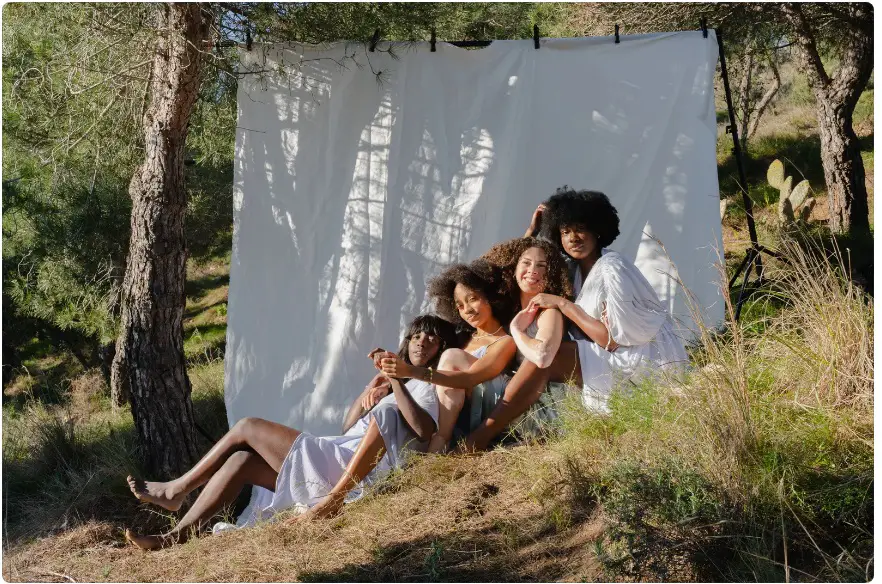Are you a reality show fan looking to take the next step and become a contestant? With so many options to choose from, it can be overwhelming to decide which shows to apply for. From competition shows, to dating shows, to makeover shows, and survival shows, each has its own unique format, prize, and audience. In this blog post, we will break down the different categories of reality shows and provide examples of popular shows in each category.
Additionally, we will discuss the factors to consider when choosing which shows to apply for, as well as tips for increasing your chances of being selected. Whether you’re a reality show veteran or a first-time applicant, this guide will help you navigate the world of reality TV and find the perfect show for you.
Contents
Choose the Genre and Format for You
Reality shows come in many different formats, each with its own unique set of rules and challenges. To help you decide which shows to apply for, it’s important to understand the different categories of reality shows. Here are a few examples of popular shows in each category:
- Competition shows: These shows pit contestants against one another in various challenges to win a prize. Examples of popular competition shows include “Survivor,” “The Amazing Race,” “American Ninja Warrior,” and “MasterChef.”
- Dating shows: These shows feature contestants competing for the affection of a single person or a group of people. Examples of popular dating shows include “The Bachelor,” “The Bachelorette,” “Love Island,” and “Are You The One?”
- Makeover shows: These shows feature contestants undergoing physical or lifestyle transformations. Examples of popular makeover shows include “Extreme Makeover,” “What Not to Wear,” and “Queer Eye.”
- Survival shows: These shows feature contestants living in remote or extreme environments and attempting to survive for an extended period of time. Examples of popular survival shows include “Naked and Afraid,” “Alone,” “Man vs. Wild,” and “Survivorman.”
- Reality-competition shows: These shows are a combination of different categories, they combine elements of competition, dating, makeover, and survival into one show. Examples of popular reality competition shows include “The Voice,” “Dancing with the Stars,” “The Great British Bake Off,” and “Big Brother.”
- Talent shows: These shows feature contestants competing in a specific talent such as singing, dancing, or comedy. Examples of popular talent shows include “American Idol,” “Britain’s Got Talent,” and “Last Comic Standing.”
- Home renovation shows: These shows feature contestants competing in home renovation and design. Examples of popular home renovation shows include “Extreme Makeover: Home Edition” and “Property Brothers.”
- Travel shows: These shows feature contestants traveling around the world and competing in challenges. Examples of popular travel shows include “The Amazing Race” and “The Great Food Truck Race.”
- Game shows: These shows feature contestants competing in various games and challenges to win prizes. Examples of popular game shows include “Jeopardy,” “Wheel of Fortune,” and “Who Wants to Be a Millionaire?”
This is not an exhaustive list and there are many other categories and subcategories of reality shows, but it gives you an idea of the different types of shows available and the format of each one. It’s important to research different shows and choose one that aligns with your interests, skills, and personality.
Reality Show Factors to Consider
When deciding which reality shows to apply for, there are several factors to consider. These include:
- Format of the show: The format of the show will affect the types of challenges and activities that contestants will be participating in. For example, if you’re interested in outdoor and survival skills, then a show like “Survivor” or “Naked and Afraid” would be a good fit.
- Prizes: The prize for the winner can vary greatly depending on the show. Some shows offer cash prizes, while others may offer a job, a car, or a house. It’s important to consider the prize and whether it aligns with your goals and interests. Some shows may not offer any prize whatsoever and in fact, will cost you money to appear. Many of the home renovations shows charge the homeowner the amount of the makeover, and in some cases charge even more than it would cost if it were just hired out to contractors. In this case, it’s often a vanity project that the people on the show are effectively subsidizing the production of the episode simply so they can appear on TV.
- Audience: The audience of the show can also play a role in the experience of being a contestant. For example, shows that have a family-friendly audience may have different rules and expectations than shows that have a more adult audience.
- Audition process and logistics: It’s important to consider the audition process for the show. Some shows will require you to submit a video, others will require you to attend an open call, and others may require you to apply. It’s important to research the audition process for each show and make sure you are prepared.
- Time commitment: Reality shows can require a significant time commitment, with contestants often living together for weeks or even months. It’s important to consider whether you’re able to take the time off work, school, or other responsibilities.
- Stress and pressure: Being a contestant on a reality show can be stressful and pressure-filled. It’s important to consider whether you’re able to handle the stress and pressure that comes with being on a reality show.
- Personal growth: Being on a reality show can be a great opportunity for personal growth and self-improvement. It’s important to consider whether you’re looking for a personal challenge and whether the show will help you achieve your goals.
Tips for Applying
Once you’ve decided which shows you’re interested in applying for, there are a few things you can do to increase your chances of being selected as a contestant. These include:
- Creating a strong application: Make sure to read the application instructions carefully and fill out all the required information. Tailor your application to the show you’re applying for, highlighting your relevant skills and experience.
- Standing out in your audition tape: If the show requires an audition tape, make sure to put your best foot forward. Dress nicely, speak clearly, and make sure the lighting and sound are good. Be creative and showcase your unique personality and talents.
- Networking with casting directors: If you’re able to attend open casting calls, take advantage of the opportunity to meet with casting directors in person. Make a good first impression and let them know why you would be a great contestant for the show.
- Being prepared: Make sure you are prepared for the audition process. Research the show, know the format and the rules and practice for the audition. Be confident and positive, and show your enthusiasm for the show.
- Being yourself: Be true to yourself, don’t try to be someone you’re not. Show your personality and let the casting directors see the real you.
- Following up: After you’ve submitted your application or audition tape, don’t be afraid to follow up with the casting directors. A friendly reminder that you’re still interested can help keep you on top of your mind.
- Being patient: The audition process can take time, so be patient. Don’t be discouraged if you don’t get selected for the first show
Conclusion
Reality shows come in many different formats and choosing the right one for you can be a daunting task. By understanding the different categories of reality shows and considering factors such as the format of the show, the prize, and the audience, you can increase your chances of finding the perfect show for you. Additionally, by following the tips for applying, you can improve your chances of being selected as a contestant. Remember to be true to yourself and let your personality shine through. Being on a reality show can be a great opportunity for personal growth, self-improvement, and even a chance to win a prize or to launch your career. Remember to research the shows and audition process and don’t be discouraged if you don’t get selected for the first show, keep trying, and don’t give up on your dream.




